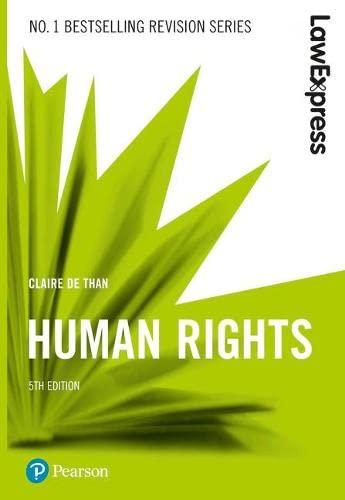Question
At the conclusion of the suppression hearing in the previous question, the prosecutor argued that, even if the court found that the omission was material
- At the conclusion of the suppression hearing in the previous question, the prosecutor argued that, even if the court found that the omission was material and the affidavit as submitted lacked probable cause, the evidence should not be excluded because the police reasonably relied upon the warrant. How should the court rule?
(A) The court should deny the suppression motion because the evidence is admissible under the good faith exception to the exclusionary rule.
(B) The court should deny the suppression motion because, even without the omitted information, there was adequate probable cause to support the warrant.
(C) The court should grant the suppression motion because the "good faith" exception to the exclusionary rule is not applicable in the face of substantiated claim of material falsehood in the affidavit.
(D) The court should grant the suppression motion because the judiciary should not be viewed as facilitating the wrongful securing of evidence by police.
Answer:
Explanation:
Step by Step Solution
There are 3 Steps involved in it
Step: 1

Get Instant Access to Expert-Tailored Solutions
See step-by-step solutions with expert insights and AI powered tools for academic success
Step: 2

Step: 3

Ace Your Homework with AI
Get the answers you need in no time with our AI-driven, step-by-step assistance
Get Started


